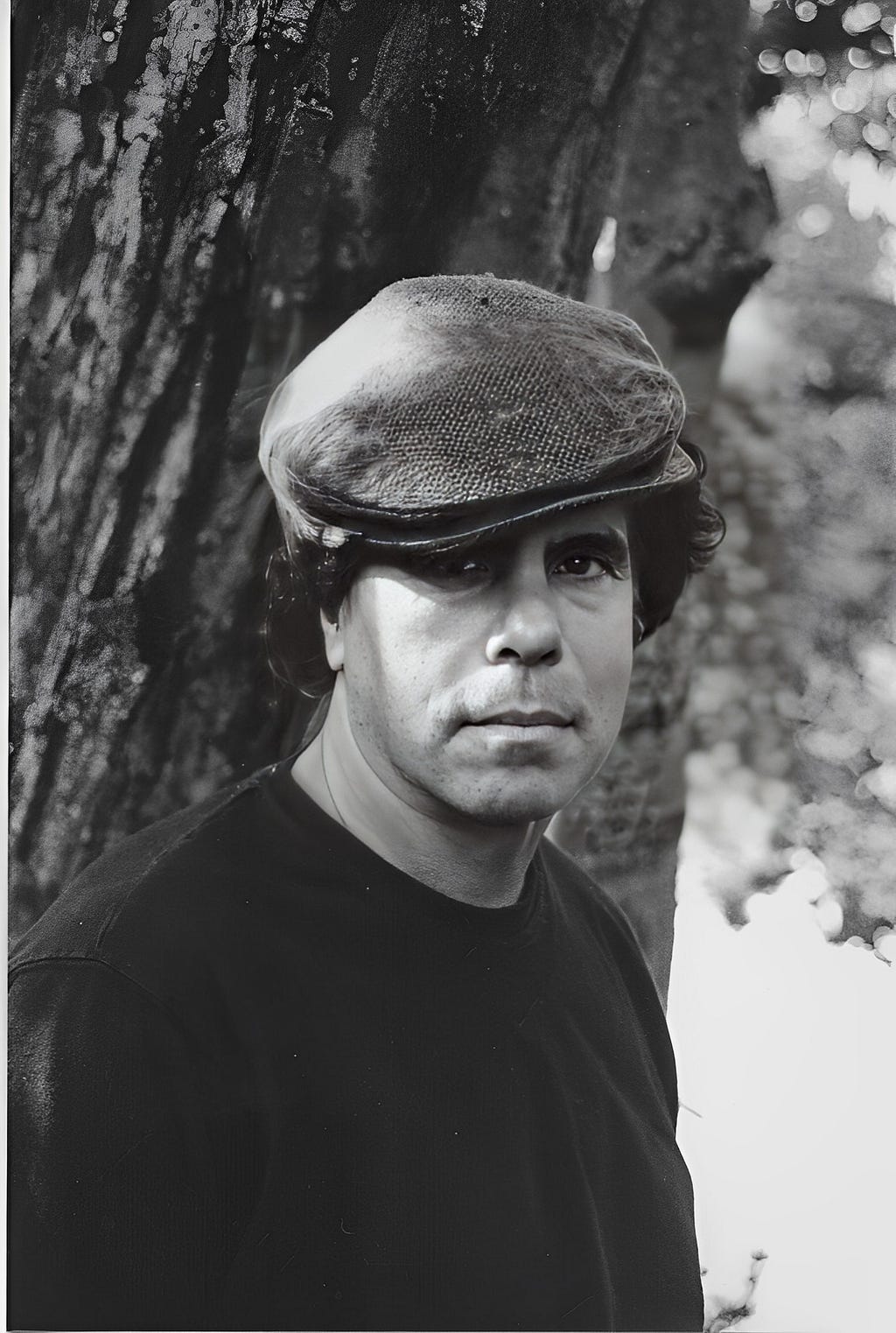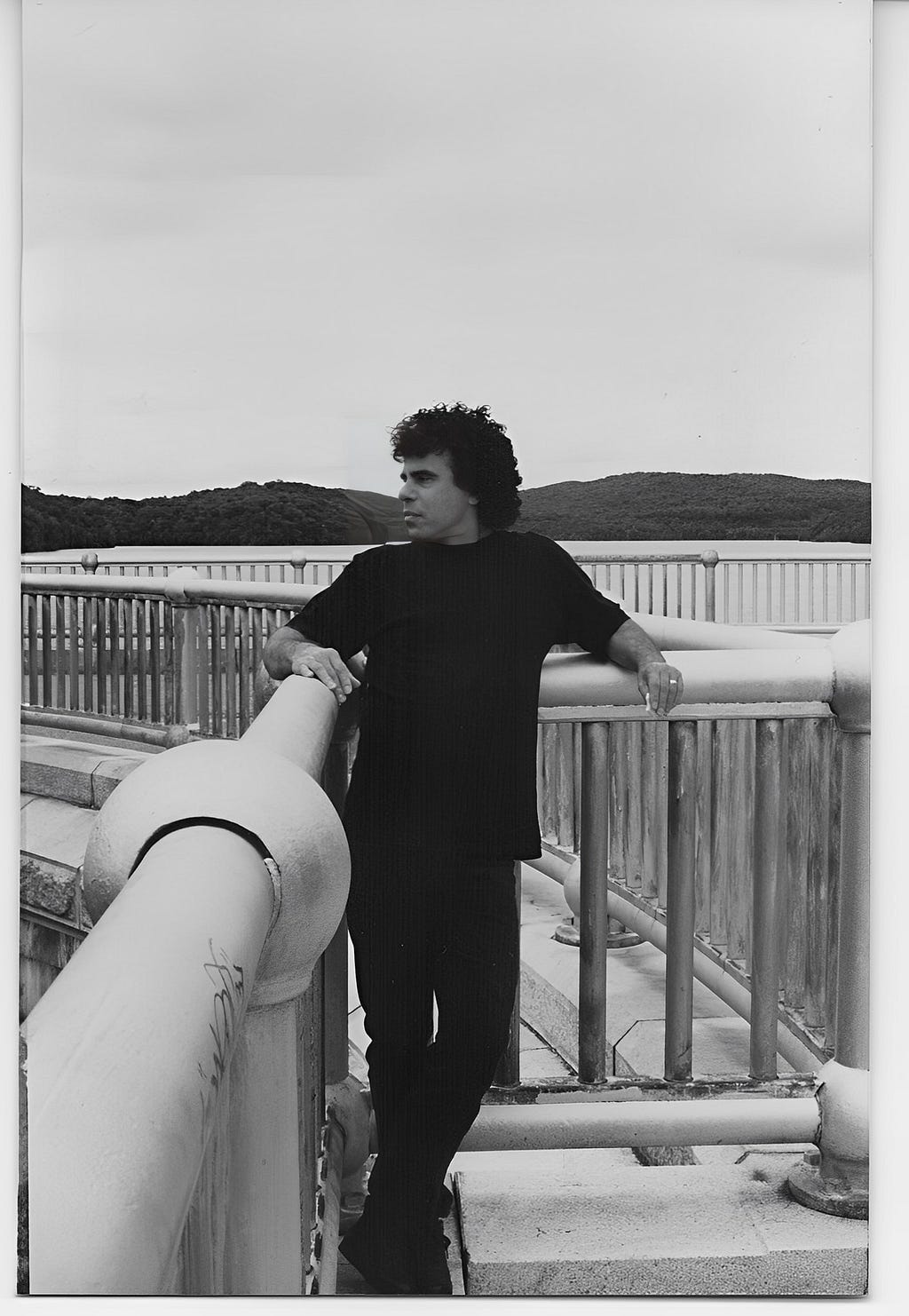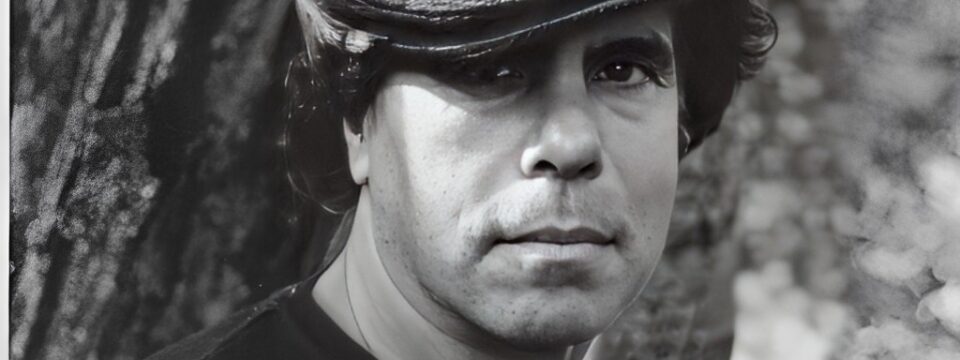
Never stop working on improving my craft. It is the foundation upon which inspiration rests. For years I just wrote, wrote, wrote, but never really analyzed structure and usage and grammatical correctness. I have been told that it takes 10,000 hours to even qualify as a “true” writer. I certainly have put in my time. For the later part of the journey, however, I worked with an editor. This allowed me to establish a voice with a craft that serves me well.
As part of my series about “authors who are making an important social impact”, I had the pleasure of interviewing Thomas Lane. Thomas is a multi-dimensional creative who is drawn to spaces where Art, Spirit and Social Justice intersect. Through music, image and word, he joins kindred souls who are confronting this tipping point moment in time. Like other artists, he is using everything in his toolbox to express the sorrow and outrage (and sometimes joy) with what we are experiencing in 2023.
Thank you so much for joining us in this interview series! Before we dive into the main focus of our interview, our readers would love to “get to know you” a bit better. Can you tell us a bit about your childhood backstory?
I was born in New Haven, Connecticut, raised in a culture of scholarship and critical thought: a father who taught at Yale; a mother who received her doctorate at Columbia University; a brother who graduated from Harvard. This was a family of bright minds and strong hearts, full of promise — but also, a family riddled with suffering and heartbreaks.
Even at a very early age, I heard a “different drummer,” and found myself on the outside looking in. Later this would manifest as a quest for deeper knowledge, one that could not be found in a classroom.
In High School I was a successful athlete, initially hoping to make it to the pros. Later while attending The George School (a Quaker Boarding School in PA), I was elected captain of the basketball team and class president. Despite the fanfare, I was glad when I finally graduated, free to follow my heart.
What sustained me, through good times and bad, was my high-voltage imagination. I learned to play the guitar and, inspired by artists like Bob Dylan and Leonard Cohen, I began writing songs. Soon I was taking the train to NYC on weekends to join the burgeoning folk scene in
Greenwich Village. Magically, when I was 15, I was offered a music publishing deal. Although no song was recorded, it gave me hope for success in the future. Alas, this was not to be and I joined the ranks of struggling artists.
At the epicenter of all my zigzags were two seminal life-changing events:
Attending the March on Washington and hearing MLK’s “I have a dream” speech, I was impacted by a longing for hope and justice that has never subsided.
The other was a handful of penetrating experiences that opened me beyond the reach of anything I could articulate…and would become my north star for the rest of my life.
This finally became manifest in my recently published novel — a Metaphysical Thriller titled
The Karma Factor.
When you were younger, was there a book that you read that inspired you to take action or changed your life? Can you share a story about that?
Ironically, the book that changed my life was The Hobbit by Tolkien, read aloud in class by my fourth grade teacher. I had been going through a hard time, where my imagination was getting worn down by a challenging family scene and exposure to some of the dark edges of our world.
Bilbo Baggins and friends showed me an alternative reality that was fun, caring but also heroic! Unbeknownst to me at the time, but later very clear — literature and books were there to rescue me!
It has been said that our mistakes can be our greatest teachers. Can you share a story about the funniest mistake you made when you were first starting? Can you tell us what lesson you learned from that?
As someone once said… “I am made up entirely of flaws stitched together with good intentions.” True for me! My first attempt at writing was a novel I wrote when I was 19, called Barker and Shrub. I was secretly believing I was an undiscovered genius and soon I would be heralded as…
I gave it to a literature associate professor at Yale. A month later I found the manuscript in my mailbox with the words from this teacher attached that read something like…. This is an abomination. What you have written cannot be called literature. What did I learn?
Humility might be a good place to start!
Can you describe how you aim to make a significant social impact with your book?
The Karma Factor is a traditional cops and robbers story, “backlit” by spiritual principles like Karma, and an awareness of consequences of one’s actions. Our world in crisis is, in my humble opinion, largely due to our legacy of instant gratification, power grabs and toxic behavior that is rarely held accountable. The cultural “lesson” becomes…do whatever you can get away with.
My book pushes back against this. We remain burdened with past transgressions until we handle the Karma and become ambassadors of our true self.
Can you share with us the most interesting story that you shared in your book?
My hero, an NYPD Detective, is haunted by images and sensations that he doesn’t understand (past lives seeping through). In an attempt to end his life, he steps into a hail of bullets from a murder suspect. But the bullets are “diverted” by a mysterious force, somehow rattling down from the sky on a rocky mesa in New Mexico. Now he has to understand why his life has been saved. The irony is…in an attempt to end his life, he finds himself at the very beginning of a new journey.
What was the “aha moment” or series of events that made you decide to bring your message to the greater world? Can you share a story about that?
I ran across the phenomenon of the Akashic Records (a database of past lives found in spiritual thought) when I was looking for a new artistic product. Being a fan of action-adventure books and noir films, I had the idea…what if these files could be used by police as an expanded profile to catch criminals…i.e. discover their tendencies and patterns of behavior in previous lifetimes, that could lead to their capture and prevent another crime.
Without sharing specific names, can you tell us a story about a particular individual who was impacted or helped by your cause?
I have been doing podcast interviews promoting the book. Whenever I am asked to describe the concept of Karma, I talk about it as I presented it in my story, as a momentum that weaves into the very real lives of the characters. There is often an appreciation by the interviewer of how I have translated a complex concept (Karma), into an accessible iteration of accountability and responsibility for one’s actions. A story not a lecture, yet I would like to think that this gives readers a take-away they can apply to better their own lives. But a page-turner, nonetheless!
Are there three things the community/society/politicians can do to help you address the root of the problem you are trying to solve?
1) Through story, through kitchen table discussions, and community activities, we need to create a better “Myth” for male identity that allows for new sensitivity — an understanding that strength includes the ability to be wrong, to make human mistakes, and to compromise on certain areas where survival is at stake.
2) Pass legislation that makes all citizens, rich or poor, black, brown or white, equal before the law. Not different scales of justice for different zip codes!
3) Reform the institutions of jails and prisons to places of true humane rehabilitation. Not via punishment, but oriented towards increasing prisoners’ understanding of their responsibility and accountability for their actions.
How do you define “Leadership”? Can you explain what you mean or give an example?
Leadership is a quality of character that calls for a clarity of purpose, a willingness to take risks, confront and overcome obstacles, and a passion for caring beyond the call of duty.
MLK manifested Leadership in the face of likely assassination. He stuck his neck out time and time again for the cause of civil rights and social justice…knowing that he was risking his life by being the focal point for those who opposed him with hatred and violence — such that his life was in jeopardy every time he went out to face the public.

What are your “5 things I wish someone told me when I first started” and why? Please share a story or example for each.
1) Take my Art very seriously, but not myself. I didn’t share my creations for many years because I was afraid that if audiences didn’t like my work, they wouldn’t like me.
2) Don’t compare my work to other artists’ work in the name of better or worse. Know that they are different creators. Know that I can learn from someone else’s craft. At the same time, certain kinds of criticism that involve good and bad, right and wrong, can become “black holes” and will only serve to invalidate the creator.
3) Don’t make Fame and Fortune top priority. They are false gods that I chased early in my career. For me, motivation needs to come from a kind of longing, something that comes from my heart that seeks expression. Making a living is in the equation but not at the top of the list.
4) Trust your instincts. I have gotten into artist relationships that got ugly and ended badly. I often had concerns about the partnership early on, but overruled them with flimsy justifications…and paid the price in spades. Moral of the story? Pay attention to all things, especially your inner red flags. Intuition is not always right, but deserves a place at the table.
5) Never stop working on improving my craft. It is the foundation upon which inspiration rests. For years I just wrote, wrote, wrote, but never really analyzed structure and usage and grammatical correctness. I have been told that it takes 10,000 hours to even qualify as a “true” writer. I certainly have put in my time. For the later part of the journey, however, I worked with an editor. This allowed me to establish a voice with a craft that serves me well.
And yet…there is always more to learn, so I keep my eyes & ears open!
Can you please give us your favorite “Life Lesson Quote”? Can you share how that was relevant to you in your life?
Winston Churchill said, “Success is to go from failure to failure without loss of enthusiasm.”
This is relevant to me because I have vowed that no matter what the future has in store, I will enjoy the process of creation — no matter what the outcomes are!
Is there a person in the world, or in the US with whom you would like to have a private breakfast or lunch with, and why? He or she might just see this, especially if we tag them. 🙂
The Dalai Lama!
No explanation needed
How can our readers further follow your work online?
Website: ThomasLane.com
This was very meaningful, thank you so much. We wish you only continued success on your great work!
You’re very welcome! And thank you.
Social Impact Authors: How & Why Author Thomas Lane Is Helping To Change Our World was originally published in Authority Magazine on Medium, where people are continuing the conversation by highlighting and responding to this story.
